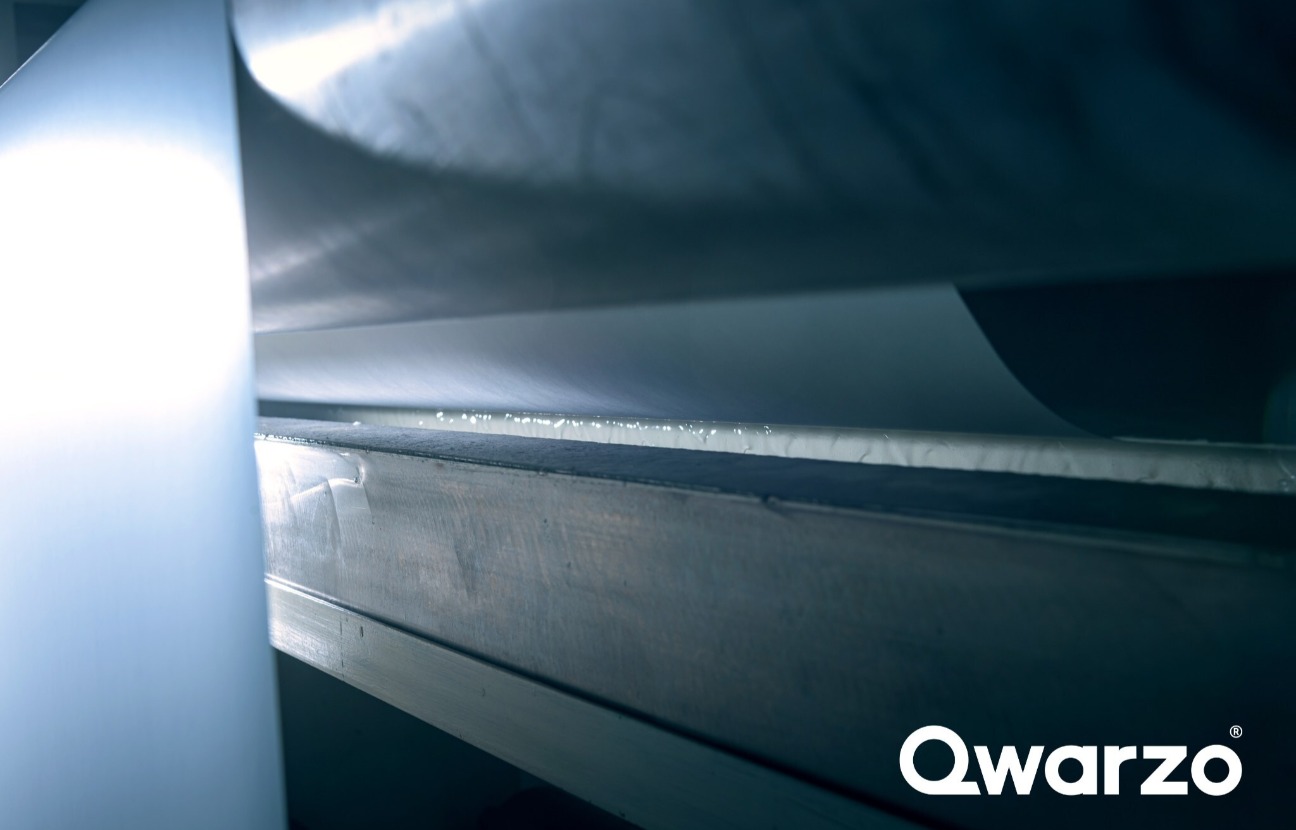Qwarzo steps into the European spotlight
Sustainable coating innovation adopted by Starbucks and Lavazza

In an era where single-use plastic faces mounting regulatory pressure and growing consumer backlash, Italian materials innovator Qwarzo is hitting its stride. The company’s mineral-based, plastic-free coating technology is gaining traction among global food and beverage brands—most notably Starbucks, Lavazza, and Grom—as a scalable alternative to traditional plastic linings and utensils.
“We believe that innovation must be both invisible and impactful,” says Luca Panzeri, Founder and CTO of Qwarzo. “The Starbucks partnership shows that scalable, responsible solutions are not just possible—they're happening now. More than a billion items have been sold with Qwarzo® coating between ice cream spoons, coffee stirrers, coffee cups, plates, and cutlery.”
From lab to large-scale impact
Qwarzo was founded in Italy over a decade ago by Panzeri, following more than 20 years of applied research in materials science and engineering. His vision: to replace single-use plastic in packaging and food service with a functional, sustainable alternative that doesn’t compromise performance. The result is Qwarzo®, a patented mineral-based coating that can be invisibly applied to paper and other substrates, enabling resistance to heat, grease, and liquids—without resorting to plastic, microplastics, or PFAS.
It’s more than just a coating; it’s a systemic shift. Unlike conventional plastic linings, Qwarzo® preserves the recyclability and compostability of paper packaging (if certified as such), allowing it to pass seamlessly through existing waste streams. "We have also completed several third-party certification processes to formally validate our environmental performance,” notes Panzeri.
While Qwarzo® acts as a high-performing barrier, it also enhances paper’s formability—an important quality for replacing plastic in shaped containers. “Paper, by nature, has lower mechanical strength, so it must be designed appropriately,” Panzeri explains. “However, Qwarzo® not only acts as a barrier, but also enhances the paper’s formability, allowing us to create more complex shapes.”
Market momentum: Starbucks, Lavazza, and beyond
Qwarzo’s recent market validation is no small feat. In May 2025, Starbucks began rolling out a new hot cup and lid across Europe. Developed in collaboration with Transcend Packaging, Metsä Board, and Qwarzo, the new design replaces both the internal plastic liner and traditional plastic lid with fully recyclable materials—including a Qwarzo®-coated pulp fiber lid capable of withstanding hot beverages.
The innovation is now available in Italy, Germany, France, Spain, Portugal, Austria, Switzerland, and Hungary, with expansion to the UK and Ireland planned by the end of the year. “By making it easier to process through existing recycling infrastructure, this innovation supports real progress in reducing plastic waste while improving material recovery,” said Vincent Mooji, Director of Circpack by Veolia, in Starbucks’ announcement.
Qwarzo is also making headway in the vending and retail categories. In Spain, Lavazza has introduced Qwarzo®-coated coffee cups in its public vending machines in partnership with Flo Group, which is also scaling the product in Germany with a major national coffee brand. Meanwhile, Unilever-owned gelato brand Grom and Italian confectioner Venchi have adopted Qwarzo®-coated paper spoons and cutlery, respectively—proof of the coating’s versatility across different food-contact applications.
Europe’s regulatory tailwinds and a strategic inflection point
Panzeri believes now is the ideal moment to scale: “The European context is currently driven by two key forces: new regulations—such as the Single-Use Plastics Directive (SUPD) and the proposed Packaging and Packaging Waste Regulation (PPWR)—and increasingly conscious consumers who are demanding real change.”
Indeed, the SUPD, which came into effect in 2021, banned a wide range of single-use plastic items and triggered a continent-wide pivot toward circular packaging solutions. Meanwhile, the PPWR aims to further standardize sustainable packaging and boost recyclability targets across the EU by 2030.
Qwarzo is positioned to thrive in this evolving landscape. Its technology is compatible with existing industrial infrastructure, giving converters and manufacturers a realistic path away from fossil-based plastics. “Qwarzo® allows packaging companies to transition from plastic to paper and from plastic-coated paper to Qwarzo®-coated paper,” Panzeri emphasizes.
Beyond food: the next frontier
While the company is currently focused on food and beverage packaging, Panzeri sees wider potential in e-commerce, pharmaceutical, and cosmetic packaging—sectors also under pressure to clean up their material footprints. “Our goal is to demonstrate that it’s possible to provide high-performance features without relying on harmful substances like PFAS, thereby expanding the positive impact of our technology.”
Looking ahead, Panzeri envisions a world where coatings like Qwarzo® become the industrial default, not the exception. “Our technology enables the elimination of plastic from millions of products, significantly reducing waste and associated emissions. In the long term, it would help redefine packaging—not as an environmental problem, but as a product with a virtuous life cycle, aligned with circular economy principles.”